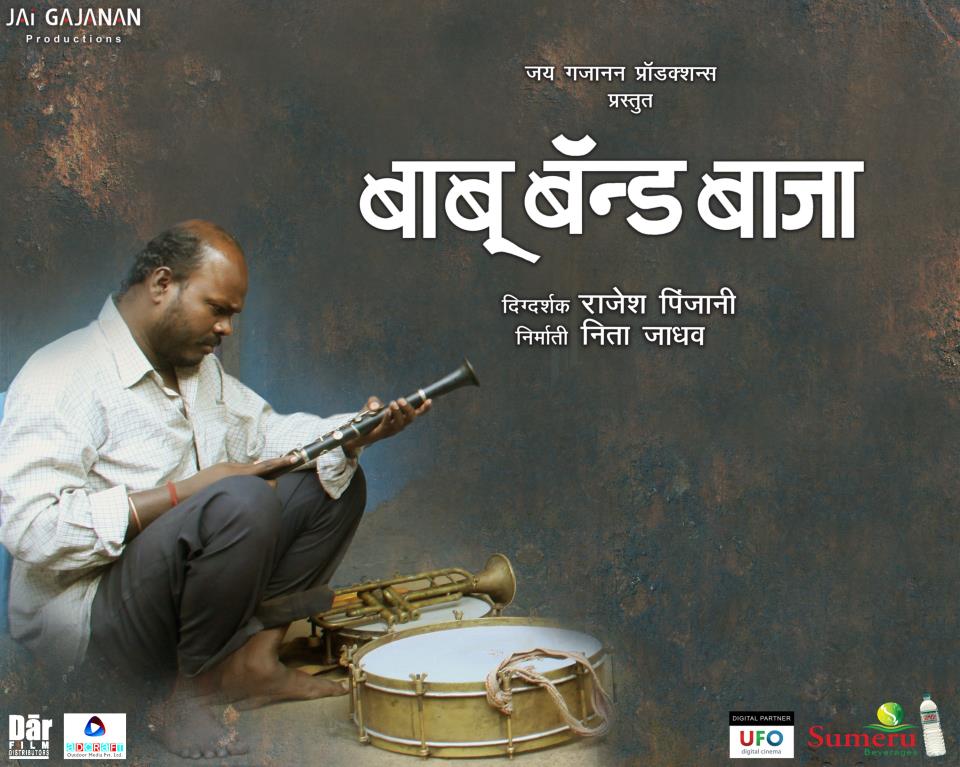Rajesh Pinjani’s debut film, Baboo Band Baja, was made nearly two years ago and even won 4 National Awards including Best Actress, Best Child Artist and Best Debut Feature last year. But it’s taken this long for his poignant tale of rural exploitation and poverty to finally get a well deserved, even if belated, theatrical release.
The film bears a remarkable similarity to Jhing Chik Jhing, which lamented the plight of poor cotton farmers through the spirited story of a sprightly boy. Like Shyam in that film, Baboo is intelligent and precocious. His mother and grandmother dote on him and the former puts herself through extreme hardships to send him to school. His father, on the other hand is world-weary and given to drowning his sorrows in liquor.
By keeping the focus firmly on the child’s world – how he is forced to help his father, once the owner of a band but now works as a freelancer and plays at weddings, funerals and sundry occasions, at work, his peculiar relation with a madwoman with whom he flies paper planes, his burning desire to study even when the teacher is determined to throw him out and his camaraderie with friends and neighbours – the director makes it harder for us to look away from this bleak landscape.
For, all around him is the indignity and humiliation of poverty. The father is ridiculed for dreaming of retrieving his musical instruments from the moneylender, there is stiff competition for the few jobs there are even in this small village and not enough food at dinnertime – buying a new school bag and books is a luxury well beyond their reach. The mother talks her way into a job at the cotton mill, but here too, she has to beg and plead with the manager to get her wages. The local politician treats the hamlet like his fiefdom and exploits it for personal gains.
Pinjani keeps the action rooted in absolute authenticity – the dialect, songs, locations and actors all contribute in equal measure. In fact, unlike recent off-beat Marathi cinema, none of the actors are well-known, thus further blurring the lines between reality and make-believe. The three principal players – Milind Shinde as the father, Mitalee Jagtap Varadkar as the mother and Vivek Chabukswar as Baboo – are quite exceptional.
The film begins and ends with a funeral. In the first, Baboo plays chimes as a stand-in for the regular musician who hasn’t turned up and like the other kids, picks up the coins that the funeral party keeps dropping on their way to the crematorium. In the second, life has served him his first big blow and ensured that this guileless kid who could smile through just about any situation, has grown up before his time and will never be the same again.
All in all, Baboo Band Baaja is a worthy addition to the Marathi New Wave, which, like a lot of good Iranian cinema of the ’80s and ’90s, uses children’s stories as a medium of socio-political critique.
Marathi, Drama, Color


